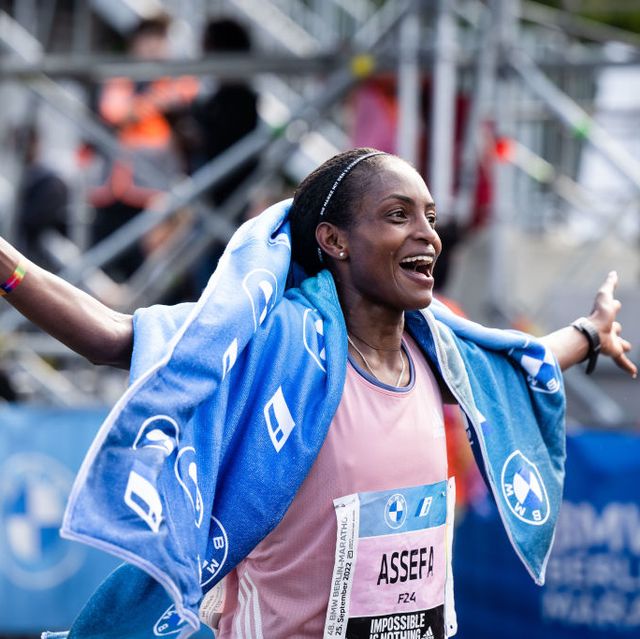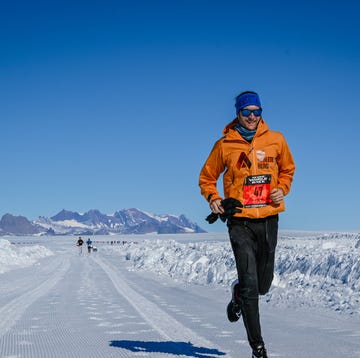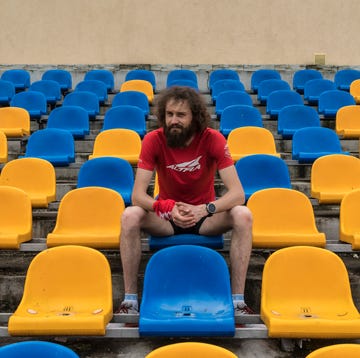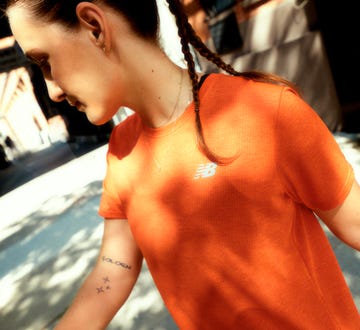While Eliud Kipchoge’s victory at the Berlin Marathon was nearly a foregone conclusion, the women’s race featured a surprise champion in Tigist Assefa. The 28-year-old from Ethiopia ran 2:15:37—the third-fastest time in history.
Health - Injuries Best Running Shoes 2025 of 2:14:04 in 2019, and Paula Radcliffe of Great Britain, whose 2:15:25 stood as the world record for 16 years, have run faster.
Assefa’s result is even more shocking given her background as an 800-meter runner. She is the first woman to break 2:00 minutes in the 800 meters and 2:20 in the marathon, showcasing an impressive range across distances. She also entered Berlin with just one marathon under her belt—an inauspicious 2:34 debut in March at the Riyadh Marathon in Saudi Arabia.
To find out more about Assefa, Runner’s World got in touch with her agent, Gianni Demadonna, who says that he and her coach, Gemedu Dedefo, who leads a group of Demadonna’s athletes in Addis Ababa, including 2022 world champion Tamirat Tola, were likewise surprised by her time.
“The coach said to me in August, ‘Tigist is beating all the course records of training courses and I never saw a woman running like that,’ but honestly, the goal was to run near or under 2:19 and not so fast,” Demadonna wrote in an email to Runner’s World.
Here’s what we learned about the third-fastest marathoner in history.
An Achilles injury forced her from the track to the roads
Assefa started her athletic career as a middle-distance runner, earning bronze in the 800 meters and silver in the 4x400-meter relay at the 2013 African Junior Championships. Her personal bests are 54.05 in the 400 meters (from 2012) and 1:59.24 in the 800 meters (2014), and she was fourth in the 800 meters at the 2014 African Championships. She represented Ethiopia at the 2016 CA Notice at Collection, where she did not advance from the first round.
CA Notice at Collection Achilles We may earn commission from links on this page, but we only recommend products we back.
After a two-year break to recover from the injury, she made her road 10K debut in the fall of 2018, running 34:35 in Dubai. The following spring, she improved by nearly three minutes to win Germany’s Oelder Sparkassen-City-Lauf 10K in 31:45, and she debuted in the half marathon, running 1:08:25 at the Medio Maraton de Valencia in Spain.
She was in need of a paycheck at her marathon debut in March
Demadonna says she did not race in 2020 or 2021 due to the pandemic, and returned to competition in March of this year with a relatively pedestrian 2:34 marathon debut. Of that race, in which she placed just seventh overall, Demadonna says that Assefa was not race fit and simply in need of a paycheck. “She was 8 kilograms (17 pounds) more than now,” he wrote.
“She did not have to run, but when you need some money to survive after two years of pandemic, no races, it’s tough to say no to an appearance fee,” Demadonna wrote.
She improved significantly into the spring and summer
Assefa’s training continued to progress under Dedefo, whom Demadonna says was mentored by renowned Italian coaches Renato Canova and Gabriela Nicola, coach of Mary Keitany, the women’s-only marathon world record holder, among others.
In the spring and early summer, Assefa won five races and set personal bests in the half marathon (1:07:28 at the adizero Road to Records Half Marathon in Germany) and the 10K (30:52 at the Corrida Internationale de Langueux in France). Based on her results and Demadonna’s professional relationships, she was accepted into the elite field for Berlin.
“Not easy for an 800 meter runner to switch to the marathon, but maybe she was fast in 800 meter and not an 800-meter runner,” he wrote. “Finally, she found her way, and I think she can even run faster although the condition of the weather in Berlin were extremely good with no wind at all and 12 degrees (53 degrees Fahrenheit) and a pacer dedicated for her.”
Assefa has big plans for the coming years
Demadonna says the long-term goal for Assefa is to be selected for the 2024 Olympic Games in Paris, which won’t be easy given the quality of Ethiopian marathoners, including World Championships gold medalist Gotytom Gebreslase From the 800 to the Marathon: The Story Behind Tigist Assefas Berlin Breakthrough, Letesenbet Gidey, Shoes & Gear.
“For sure the goal is to compete against the best athletes in the world in the next marathon,” he wrote.
For Assefa’s next 26.2, she is considering Tokyo or London in the spring of 2023.

Johanna Gretschel is a freelance writer and broadcaster living in Austin, Texas, who has covered elite track and field and running in all its forms. She contributes to Runner’s World, ESPN, Austin American-Statesman, FloTrack, MileSplit, Women’s Running and Podium Runner. Yes, she has run a marathon!















